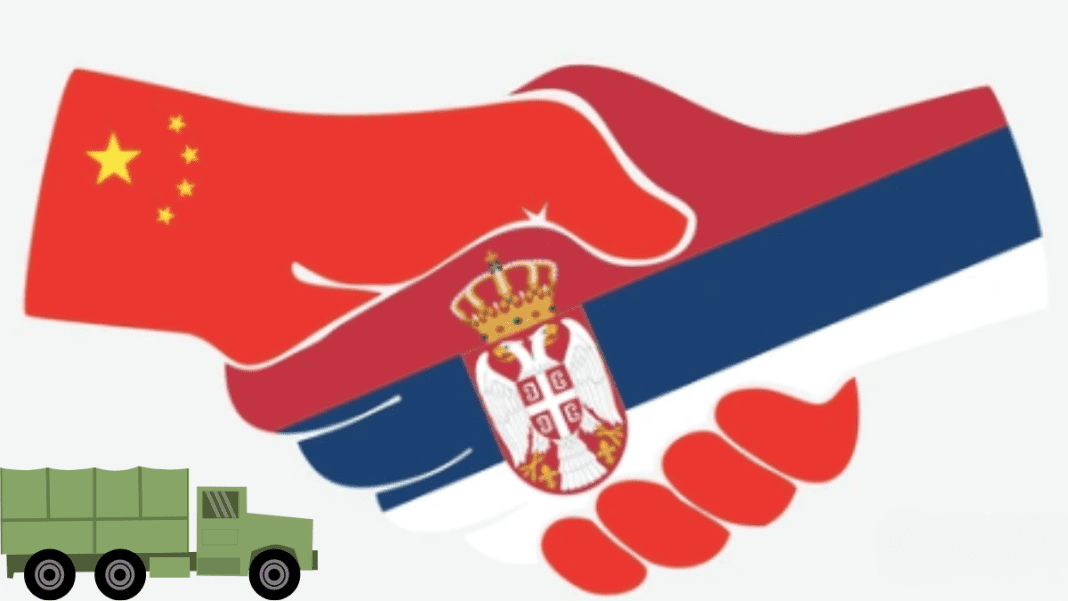Serbia is preparing to hold military training exercises with China this month. This is the first time a country that wants to join the European Union (EU) will take part in such drills with the Chinese military.
Historic Serbia-China Military Exercise Announced
The exercise, named “Peacekeeper 2025,” is scheduled to happen in Hebei Province, northern China, in the second half of July. Special army units from both Serbia and China will participate.
The announcement has created concern within the European Union. Serbia is a candidate country for joining the EU, and the bloc expects such countries to follow its foreign policy. But Serbia has been working closely with China and Russia as well, raising questions about its true alignment. The EU wants Serbia to show that it is committed to European values, policies, and long-term security goals.
The upcoming joint training is being viewed by Brussels as going against the EU’s principles. A spokesperson from the EU made it clear that Serbia needs to show it can be a trustworthy partner. The concern is that Serbia’s military cooperation with China does not match the expectations of a country wanting to join the EU.
Serbia has a military neutrality policy, which means it doesn’t officially side with any major military power. It is also a participant in NATO’s “Partnership for Peace” program. Still, its deeper ties with China and Russia are raising concerns in European circles, especially with the ongoing tensions involving Russia and Ukraine.
Lithuania Rejects Airspace for Serbian, Slovak Leaders Heading to Russia
Serbia-China Military Partnership Under Scrutiny
The Serbia-China military drills are seen as part of a larger pattern of growing defense cooperation between the two countries. Serbia has already bought Chinese military equipment, including drones and an air defense system. In 2020, Serbia purchased CH-92A drones from China, and in 2023, it showcased the newer CH-95 model. In 2022, Serbia became the first European country to receive the FK-3 air defense system from China. Later in 2024, it was confirmed that Serbian troops had been trained in China on how to operate this advanced missile system.
Western leaders have raised concerns about Serbia buying military equipment from both China and Russia. This is especially concerning given Russia’s invasion of Ukraine. After that invasion, Serbia paused most of its joint military exercises with foreign countries. However, it continued hosting the “Platinum Wolf” exercise, which includes NATO members like the United States. Critics say that this selective decision-making makes Serbia’s military neutrality look weak and inconsistent.
So far, the Serbian and Chinese governments have not shared full details about the Peacekeeper 2025 exercise. There is no official number of troops participating, and it’s unclear if Serbia will host future military drills with China. What is clear is that this drill is not just basic training—it’s a full-scale military exercise based on the name, planning, and expected activities.
This is not the first time China has conducted military exercises in Europe. In 2024, Chinese troops trained with Belarusian forces near NATO’s borders, at a time when NATO was meeting in Washington. These types of activities have been viewed as strong signals from China to the West, especially as China builds relationships with countries that have close ties to the EU or NATO.
Deepening Ties Beyond the Battlefield
Military exercises are just one part of a much larger relationship between Serbia and China. The two countries have signed a free trade agreement, and China is now the largest exporter of goods to Serbia. In 2024, imports from China to Serbia reached over €5.1 billion. China has also invested heavily in Serbian infrastructure, including roads, bridges, and energy projects.
Security cooperation between the two countries began years ago. Joint police patrols started in 2019 and have continued since. Serbia has also adopted many types of Chinese surveillance and policing technologies. Training and educational programs have been established between Serbian and Chinese security forces, showing a steady increase in cooperation beyond just the military.
From China’s side, these military partnerships serve important purposes. They help Chinese troops gain international experience and improve China’s global image as a powerful and reliable country. This matters more now, as many European countries have been unwilling to deepen military ties with China. Previous exercises with Germany and Belarus have shown China’s growing interest in European defense diplomacy.
Behind the Screen: How Serbia Uses Spyware to Silence Critics
In May 2024, China’s leader visited Serbia and made a strong commitment to expanding the strategic partnership. Both countries agreed to build a shared future, highlighting their long-term cooperation in areas such as trade, defense, and global diplomacy. The growing partnership also plays a key role in China’s interest in Kosovo-related issues in global institutions, where Serbia seeks support.
While Serbia continues to engage with NATO and maintains its EU membership goals, its close ties with China and Russia make its foreign policy complex. The Peacekeeper 2025 military drills mark a bold new step in this balancing act—and a move that has clearly caught the EU’s attention.

